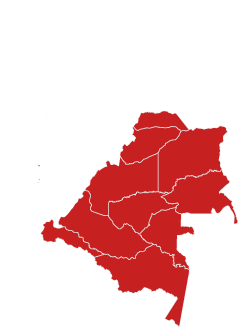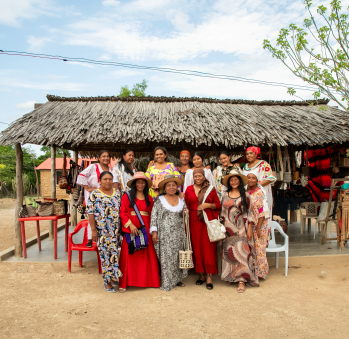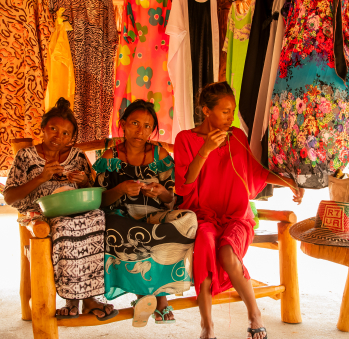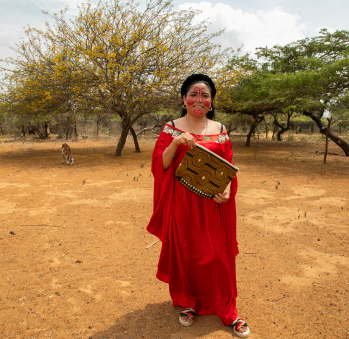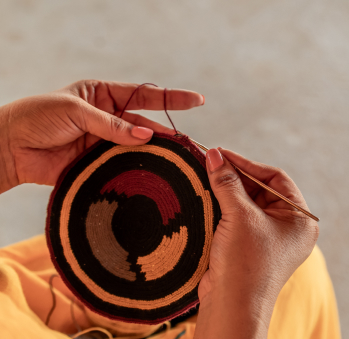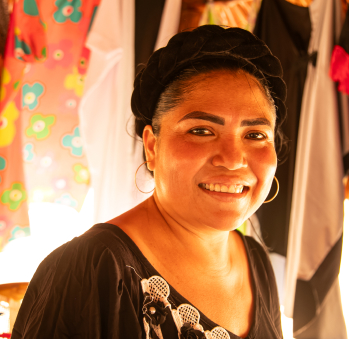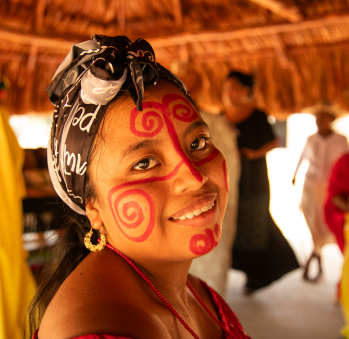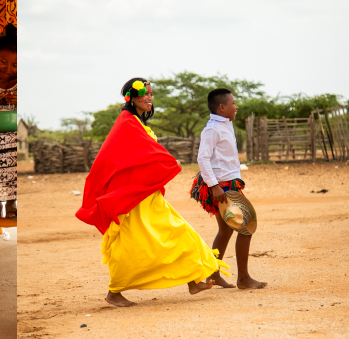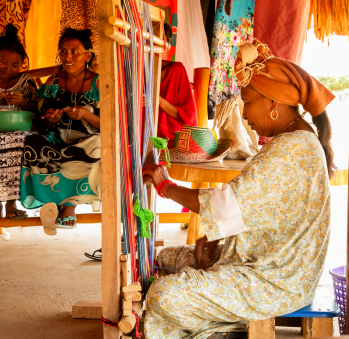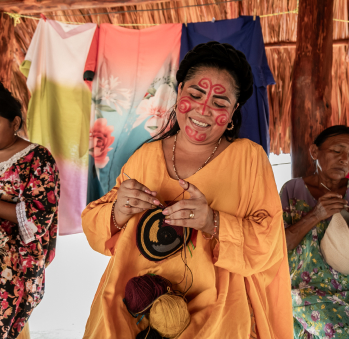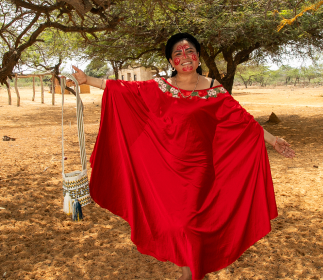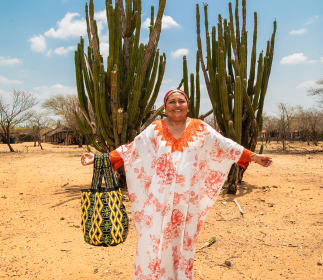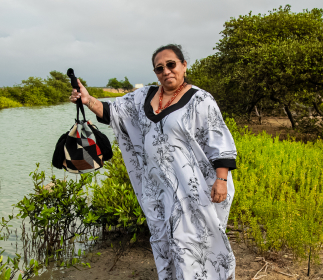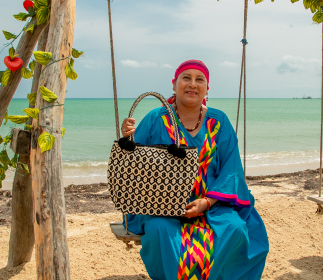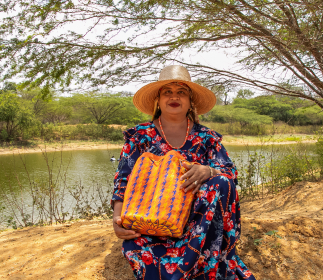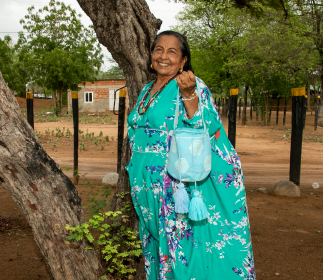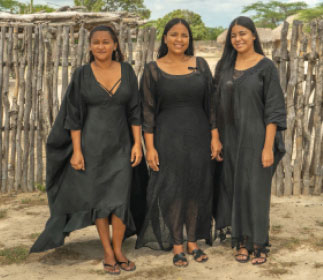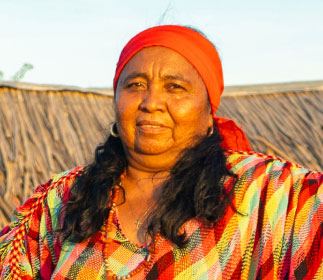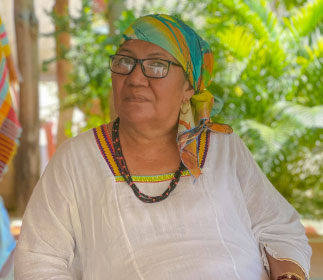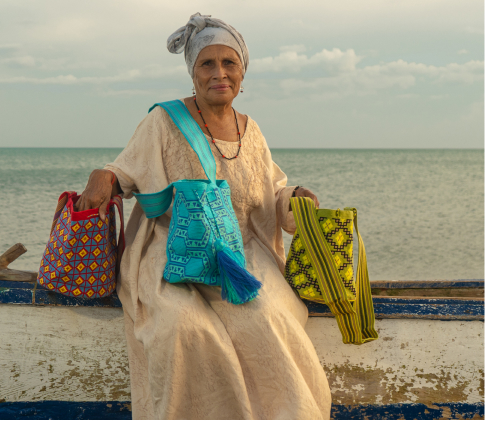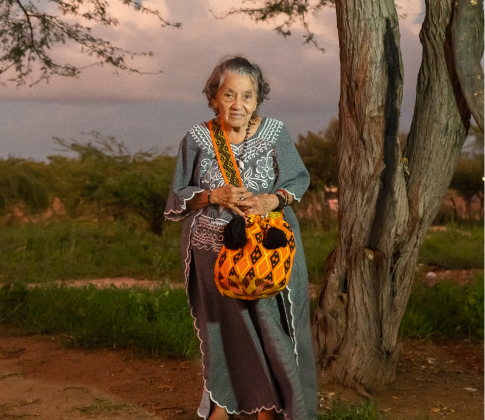Beatriz Epieyú
Workshop: Taller Jurunao
Craft: Weaving
Trail: Riohacha - Nazareth Route
Location: Manaure, La Guajira
There’s a name that hovers above Beatriz Epieyú permanently and intensely. It sneaks in like the dreams that appear to the Wayuu people as part of the nature of their cosmogony. It’s the name of Mrs. María Antonia, her maternal grandmother. While her mother’s, Josefita, as she lovingly calls her, is essential, because how could it not be when pointing out the influences and formation of her character, she owes them to the eldest of the family.
She recounts that at age 12, when she got her first period, something that in her culture is decisive and transitional, her mother called María Antonia and announced the arrival of adulthood. Immediately, she told her that she was coming for her, and that she would take her to her own ranchería for a while. She knew that if she didn’t, her mother would pamper her with affection and cuddles. So, at that moment, the grandmother took charge of her transition to a new life with learnings and advice that today, while mentioning them, she sees as fundamental.
The way she narrates those days is filled with reverence. From the words and deeds experienced, starting with the three baths she had to take each day, the first of them at 3 in the morning, as well as the ingestion of drinks that made her sick, something her grandmother gave her to throw up any “future evil,” as she said it without a chance of reply. It was tough, very tough, she remembers, because the severity of the words about the right and wrong paths was difficult to understand for such a young girl. María Antonia explained life to her without her having lived it yet.
And so, she insisted on the need to learn to fend for herself, to never depend on a man for anything, to submit to him, to kneel before him. Her words, when she repeats them now in her forties, strong and clear as she heard them from her grandmother, paved the way for her to be the leader she is today. And she can’t help but be grateful for everything. Because she taught her to stand firm, because she would later understand that she, who was the youngest of Josefita’s daughters, had been chosen to carry on the Epieyú legacy. That’s why weaving is more than a craft, it’s the meaning of freedom.
With the responsibility of looking after her family, her grandmother made her promise that she would learn to weave the hammock and the bag, to never abandon her own, nor leave them without employment. She made her swear that she would manage everything so that never, none of them, would suffer need. And so she has done. That’s why, hearing her, she sounds like a mature woman, aware of her role on earth, with a universe on her shoulders, but for that reason, prepared with the necessary strength to withstand it.
In this journey, she has dedicated herself to the weaving of her community. Today her goal is to formalize a group of artisans who find in crafts a way of life. She is setting up a collection point and tourist kiosk where they can offer their products with better exposure than selling them at low prices in the market square of Riohacha. Because the things she has done with her family, she also made it her mission with her own community. And although it’s complex, she knows how to navigate the tough terrain, her grandmother María Antonia taught her to do it very well, so, hovering above her, she knows she will do very well in that task because that’s what her granddaughter was entrusted with. And so it will be.
Craft
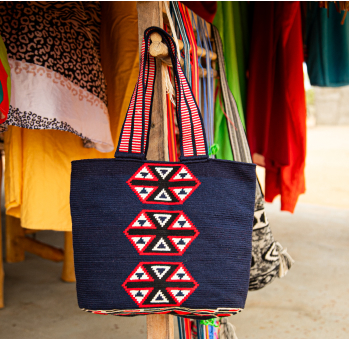
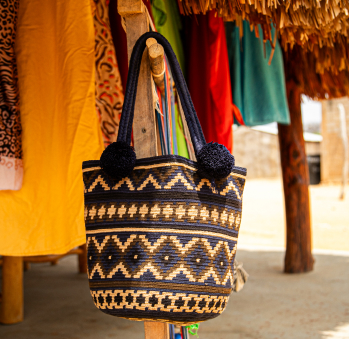
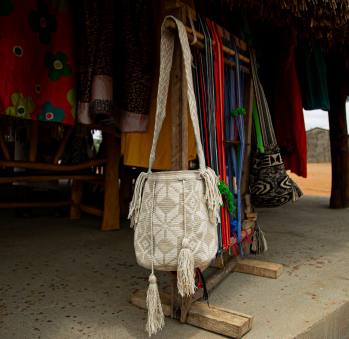
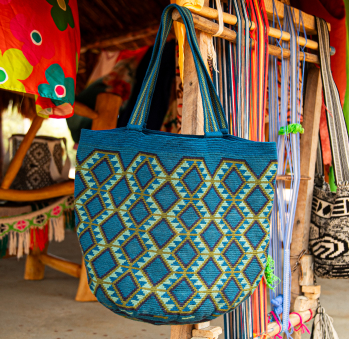
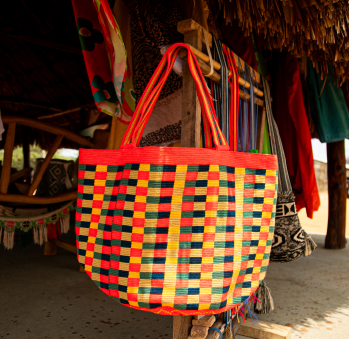
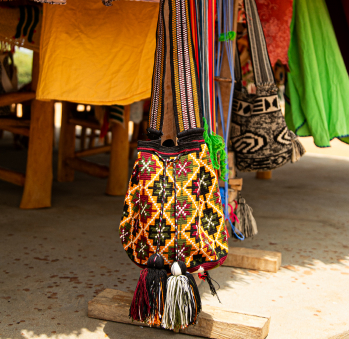
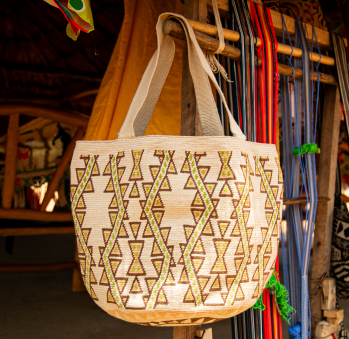
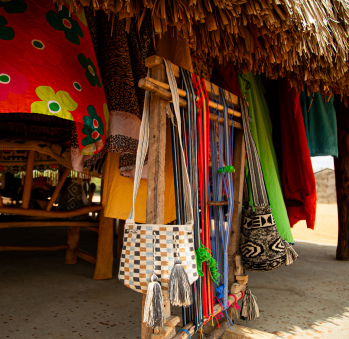








Artisans along the way
Artisans along the way
No puede copiar contenido de esta página

